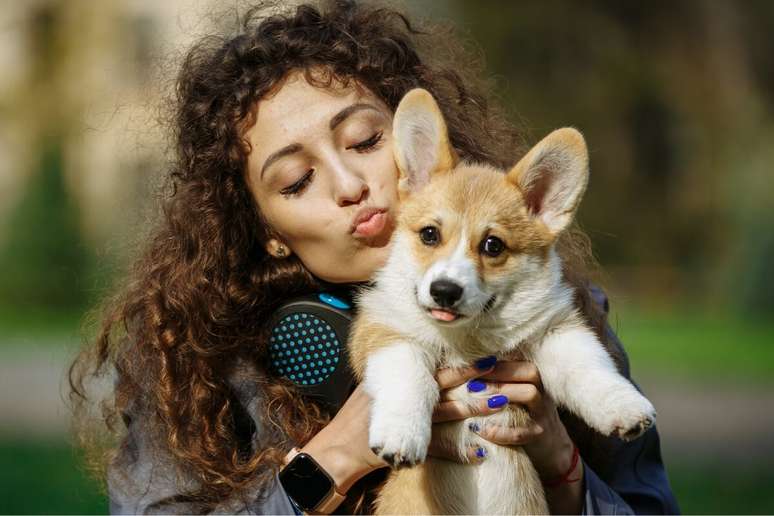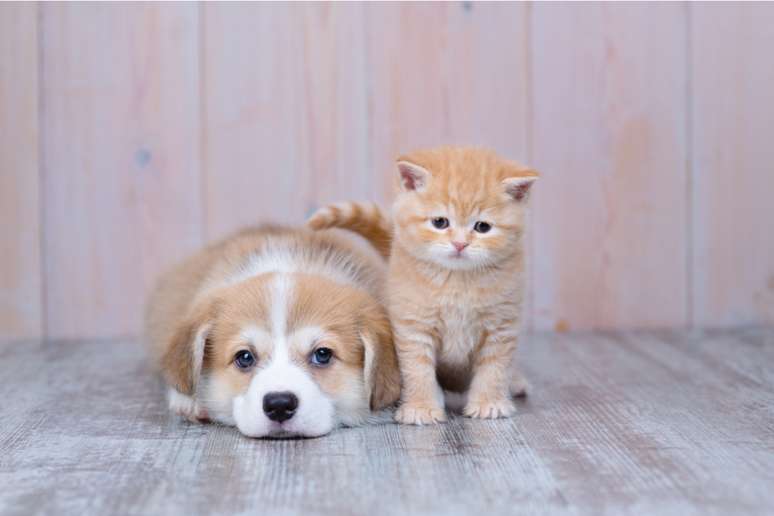Learn how to ensure the health, comfort and adjustment of this new family member
Adopting a puppy or a cat is always a special moment full of joy for every owner. This gesture symbolizes the beginning of a relationship of love and companionship, as well as offering the opportunity to transform the animal’s life. However, it is essential to take some precautions to ensure the health, comfort and adaptation of this new family member to the environment.
Below, check out some tips on caring for puppies and cats!
1. Space and objects for the puppy
Before adoption of the puppy, it is necessary to prepare the house to welcome the animal. As veterinarian Fernanda Ambrosino explains, it is necessary to identify the places for pet sleep, eat and satisfy physiological needs. “In addition, the owner must have some basic items to accommodate the dog or cat, such as food containers, kennel, food, scratching posts, (cat) litter, among others,” it lists.
2. Ensure safety From pet
Puppies are very curious and sensitive. Therefore, Jade Petronilho, veterinarian and behaviorist from petsexplains that it is necessary to remove from the animal’s reach anything that could put its life or health at risk. According to her, if you are not careful, accidents can occur with furniture tipping over or even swallowing cleaning products and small objects.
In case of catsIn particular, Andréia Facin, veterinarian, and Francine Ther, creator of the YouTube channel and social networks Amigo Pug, recommend screening the windows of your house or apartment so that felines don’t get out or get hurt.
3. Socialization and rapprochement
Socialization and approaching new people pet with others animals home is an important step in introducing the puppy to the family. To this end, Jade Petronilho recommends that interactions be controlled and monitored by adults.
“Introduction between cats should be gradual, starting without direct contact (with the exchange of objects, between doors, etc.) and never abruptly. Among dogs, this will vary depending on the age and temperament of the animals,” he explains. According to her, this process is usually easier when the dog that was already in the home is playful and sociable. Otherwise, you need to be patient and cautious.

4. First interactions with family
In the case of socialization with the family, Jade Petronilho’s main advice is respect for the animal. “It’s a trend that everyone wants to pick up the puppy, play with it all the time, interact. We also need to understand their times. There are pets more shy, and others more open to this type of interaction”, he analyzes.
5. Food care
Take care of yourself food of the puppy is essential for it to develop healthily. “Puppies should be fed puppy food, preferably from the super-premium category, which is complete food and should not be supplemented with other products,” explains Jade Petronilho.
According to the vet, as puppies it is recommended to consume 3 to 4 meals a day. “It is worth remembering that the amount of food must be adjusted as time passes and the animal grows,” he adds. Therefore, if you have any doubts about your child’s diet, petIt is essential to consult a veterinarian.
6. Dangerous foods
Some owners usually give cow’s milk to their puppies, especially cats. However, this can be harmful for animal health. “Over time, as in the case of humans, animals may stop producing the enzyme lactase, which is responsible for ‘breaking down’ the lactose present in milk and, as a result, may experience diarrhea, gas and abdominal discomfort,” warns Jade Petronilho. In addition to milk, other foods dangerous to animal health due to toxicity are: garlic, onion, chocolate, grapes, raisins, animal fats and caffeine.
Source: Terra
Ben Stock is a lifestyle journalist and author at Gossipify. He writes about topics such as health, wellness, travel, food and home decor. He provides practical advice and inspiration to improve well-being, keeps readers up to date with latest lifestyle news and trends, known for his engaging writing style, in-depth analysis and unique perspectives.







